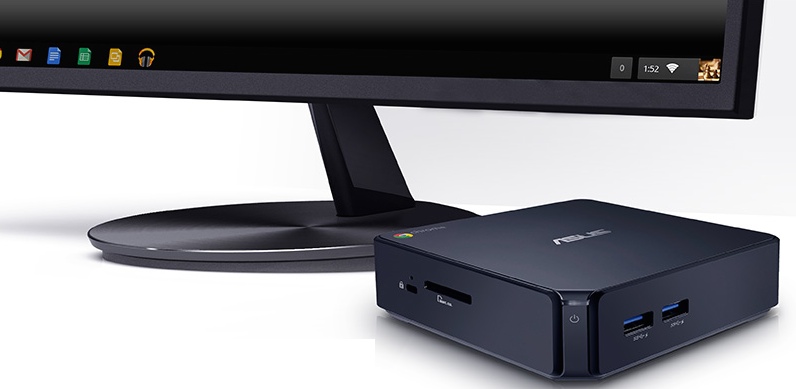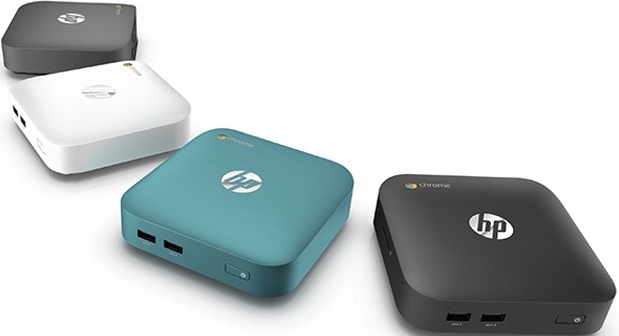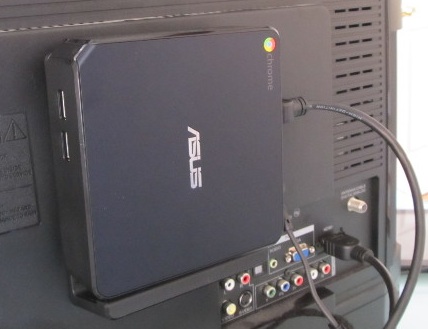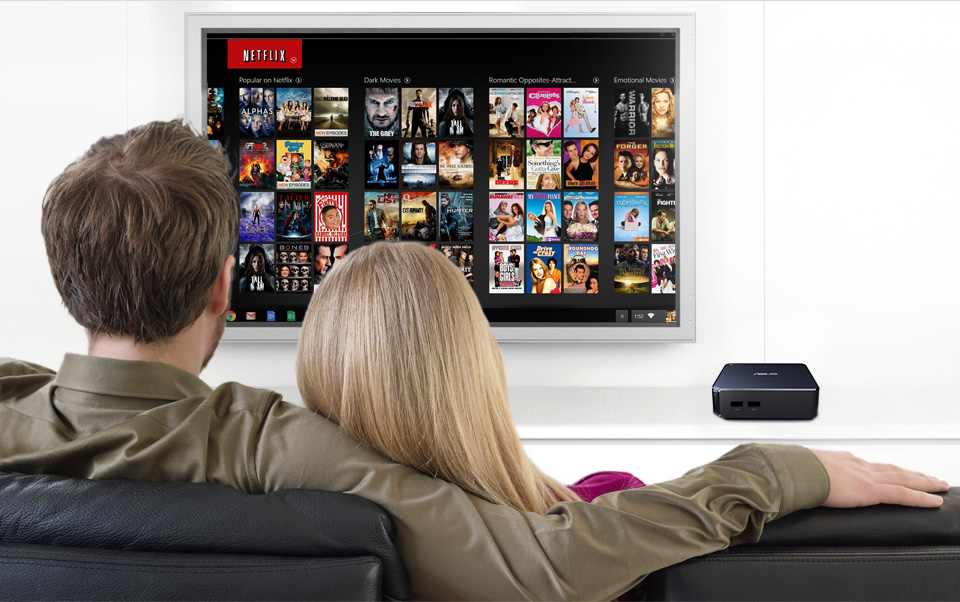
Chances are you’ve heard of a Chromebook —the hot new category in affordable, mobile computing— but what the heck is a Chromebox? The cardboard box a ships in? Does it have anything to do with Battlestar Galactica and Cylons? No to both. Chromebox is the natural extension of the Chromebook, taking Google’s Chrome operating system and using it to run a compact, portable and affordable alternative to a traditional desktop Windows PC. The Chromebox isn’t for everyone, but when it comes to a desktop PC that features near instant boot-up, built-in security, the ability to work on documents and spreadsheets using free (and offline-capable) apps plus a complete web experience, a Chromebox is an appealing option.
Chromebox Target Demographic
The Chromebox is a low-cost replacement for a traditional desktop PC. Because it runs Google’s Chrome operating system, it boots almost instantly, it’s very secure with low IT maintenance requirements (thanks to automatic system updates) and it runs Google’s cloud-based productivity applications —which are also available offline.

It may not be a high powered PC, but it has the horsepower needed to take care of basic business or student needs, it’s a very capable web access computer and it can play video —although it lacks onboard storage for a video library. But it has all the ports need to plug in an extra computer monitor (or it could be plugged into an HDTV) and you can use many PC peripherals such as keyboards, mice and external hard drives.
In short, it’s a low cost, low maintenance replacement for a traditional desktop PC, ideal for applications like reception, student use, a casual PC in the living room or an all-purpose box for accessing web-based applications.
Basically, a Chromebox is a candidate anywhere you need a bigger monitor than a Chromebook’s built-in display provides, but you don’t need the high powered capabilities, features or software compatibility of a Windows or Mac PC.
Google is also positioning the Chromebox as a single-purpose solution, where a dedicated PC can be left to run a particular function —for example, as the PC powering a business video-conferencing system.
Chromebox Key Specs
 One of the key selling points about the Chromebox is that it is not particularly spec-driven. Because Google’s Chrome operating system is very lean and much of the processing power for apps is cloud-based, manufacturers are able to keep Chromebox specs relatively modest. Not having to pack the latest high-powered CPU, graphics card or a high capacity hard drive also goes a long way toward keeping prices low. That being said, there are some key specs that you should be watching for:
One of the key selling points about the Chromebox is that it is not particularly spec-driven. Because Google’s Chrome operating system is very lean and much of the processing power for apps is cloud-based, manufacturers are able to keep Chromebox specs relatively modest. Not having to pack the latest high-powered CPU, graphics card or a high capacity hard drive also goes a long way toward keeping prices low. That being said, there are some key specs that you should be watching for:
 Capable processor (the more powerful, the more expensive the Chromebox will be, but an Intel Celeron or Core i3 are more than capable of providing the needed speed)
Capable processor (the more powerful, the more expensive the Chromebox will be, but an Intel Celeron or Core i3 are more than capable of providing the needed speed)- Minimum 16GB SSD (sufficient storage for the OS and some local document storage)
- Minimum 2GB RAM, preferably 4GB
- USB 2.0 and USB 3.0 ports (for connecting peripherals)
- 802.11a/b/g/n Wi-Fi
- Ethernet jack
- Bluetooth
In addition, some Chromebox manufacturers —anticipating that the device will be used as a media player in the living room, or that people prefer an all-in-one PC form factor— have included a VESA mount. That means the Chromebox can be physically attached to the back of a TV or monitor, out of sight.
Who Is the Chromebox Not Intended For?
Like the Chromebook, the Chromebox succeeds because it’s compact, inexpensive and runs the lightweight Chrome OS. That makes the little PC ideal for some uses, but there are situations where the Chromebox simply won’t cut it.
If you need to run Windows or Windows software like Microsoft Office, you need to stick with a Windows-compatible PC. If you want to play video games (other than casual, online games), a Chromebox lacks the graphics and processing power needed. And if you’re using any specialized hardware that requires a PC for setup, configuration or use (like a FitBit fitness sensor), you’re better off sticking with a traditional PC.

Still interested in a Chromebox? Leading manufacturers like Samsung, HP and Asus are ramping up the latest versions of their Chromebox product lines so you can expect to see them start showing up on store shelves soon.



